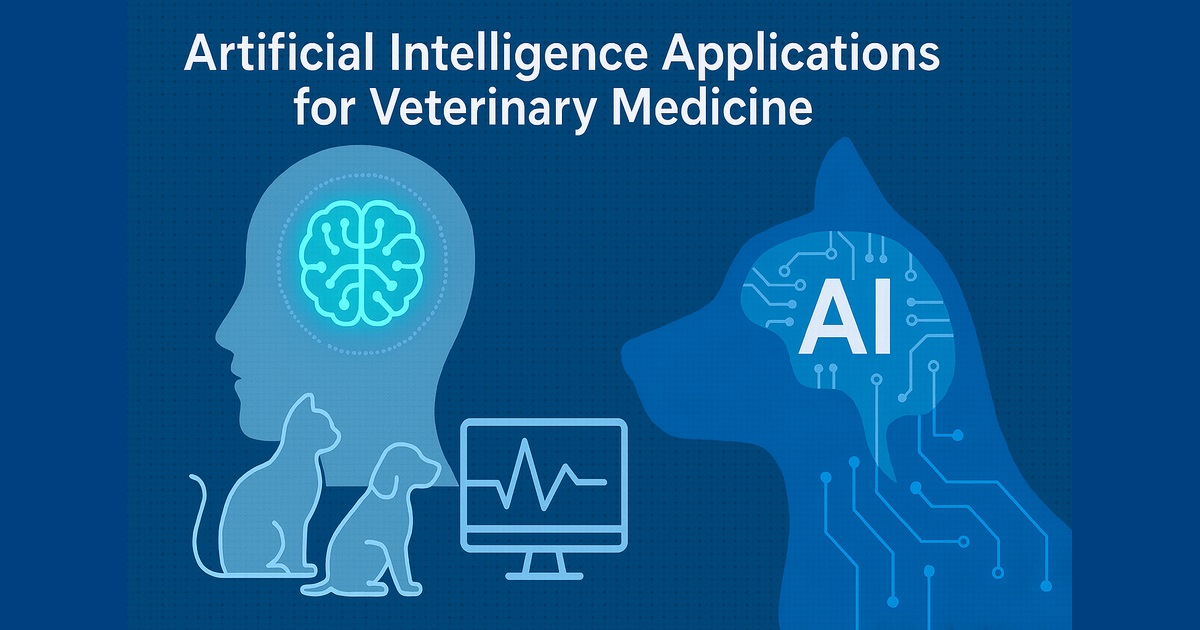- 2.7Impact Factor
- 5.2CiteScore
- 18 daysTime to First Decision
Artificial Intelligence Applications for Veterinary Medicine
This special issue belongs to the section “Veterinary Clinical Studies“.
Special Issue Information
Dear Colleagues,
Artificial Intelligence (AI) has emerged as a transformative tool in veterinary medicine, offering innovative solutions across diagnostics, treatment planning, disease surveillance, and animal health management. Machine learning algorithms, image recognition, and predictive analytics are increasingly applied to enhance diagnostic accuracy, optimize therapeutic interventions, and streamline clinical decision-making. AI tools are being integrated into imaging modalities such as radiography and ultrasound, enabling automated lesion detection and classification. Furthermore, natural language processing is facilitating the extraction of clinical insights from unstructured veterinary records, contributing to evidence-based practice.
The aim of this Special Issue is to bring together the latest findings concerning the role of AI in veterinary science and animal healthcare. Original research papers and literature reviews from different research areas, such as diagnostic imaging and analysis, pathology, epidemiology, animal behavior, telemedicine, veterinary robotics, pet health monitoring devices, personalized treatment plans, supply chain and inventory management, veterinary drug discovery, and chatbots for pet owners, are encouraged. These contributions will illustrate how AI is being employed to solve complex veterinary challenges, ranging from diagnostic automation to disease prevention strategies. Additional topics and interdisciplinary studies regarding the ethical, regulatory, and economic aspects of AI adoption in veterinary practice will also be considered.
Dr. Sofia Alves-Pimenta
Guest Editor
Manuscript Submission Information
Manuscripts should be submitted online at www.mdpi.com by registering and logging in to this website. Once you are registered, click here to go to the submission form. Manuscripts can be submitted until the deadline. All submissions that pass pre-check are peer-reviewed. Accepted papers will be published continuously in the journal (as soon as accepted) and will be listed together on the special issue website. Research articles, review articles as well as short communications are invited. For planned papers, a title and short abstract (about 250 words) can be sent to the Editorial Office for assessment.
Submitted manuscripts should not have been published previously, nor be under consideration for publication elsewhere (except conference proceedings papers). All manuscripts are thoroughly refereed through a single-blind peer-review process. A guide for authors and other relevant information for submission of manuscripts is available on the Instructions for Authors page. Animals is an international peer-reviewed open access semimonthly journal published by MDPI.
Please visit the Instructions for Authors page before submitting a manuscript. The Article Processing Charge (APC) for publication in this open access journal is 2400 CHF (Swiss Francs). Submitted papers should be well formatted and use good English. Authors may use MDPI's English editing service prior to publication or during author revisions.
Keywords
- diagnostic imaging
- disease surveillance and outbreak prediction
- predictive analytics for disease
- clinical decision support systems

Benefits of Publishing in a Special Issue
- Ease of navigation: Grouping papers by topic helps scholars navigate broad scope journals more efficiently.
- Greater discoverability: Special Issues support the reach and impact of scientific research. Articles in Special Issues are more discoverable and cited more frequently.
- Expansion of research network: Special Issues facilitate connections among authors, fostering scientific collaborations.
- External promotion: Articles in Special Issues are often promoted through the journal's social media, increasing their visibility.
- e-Book format: Special Issues with more than 10 articles can be published as dedicated e-books, ensuring wide and rapid dissemination.

